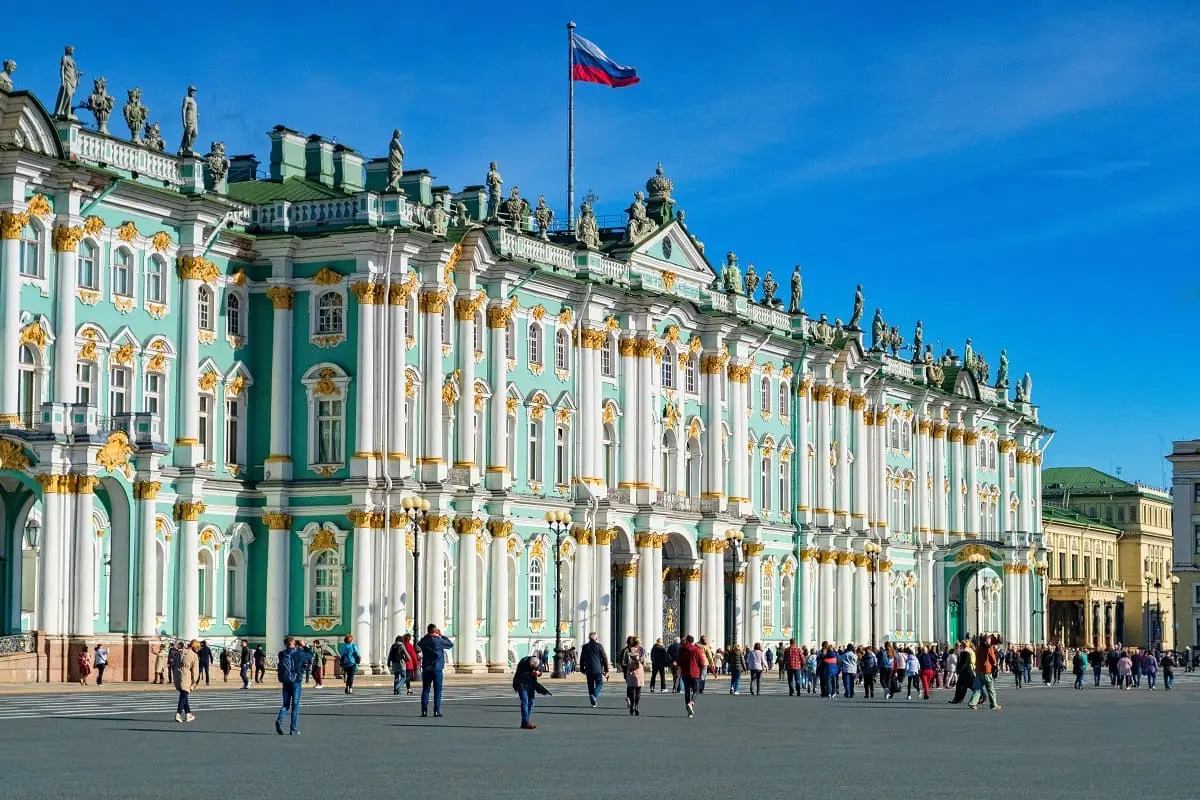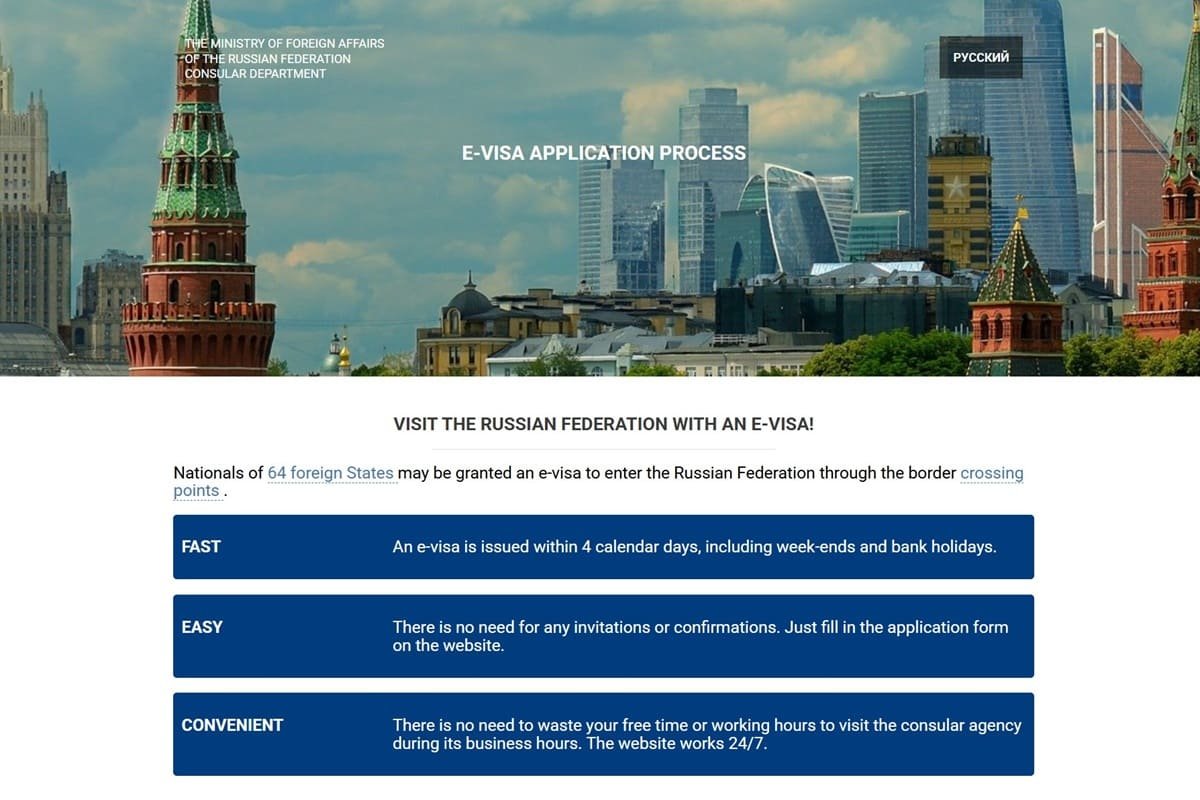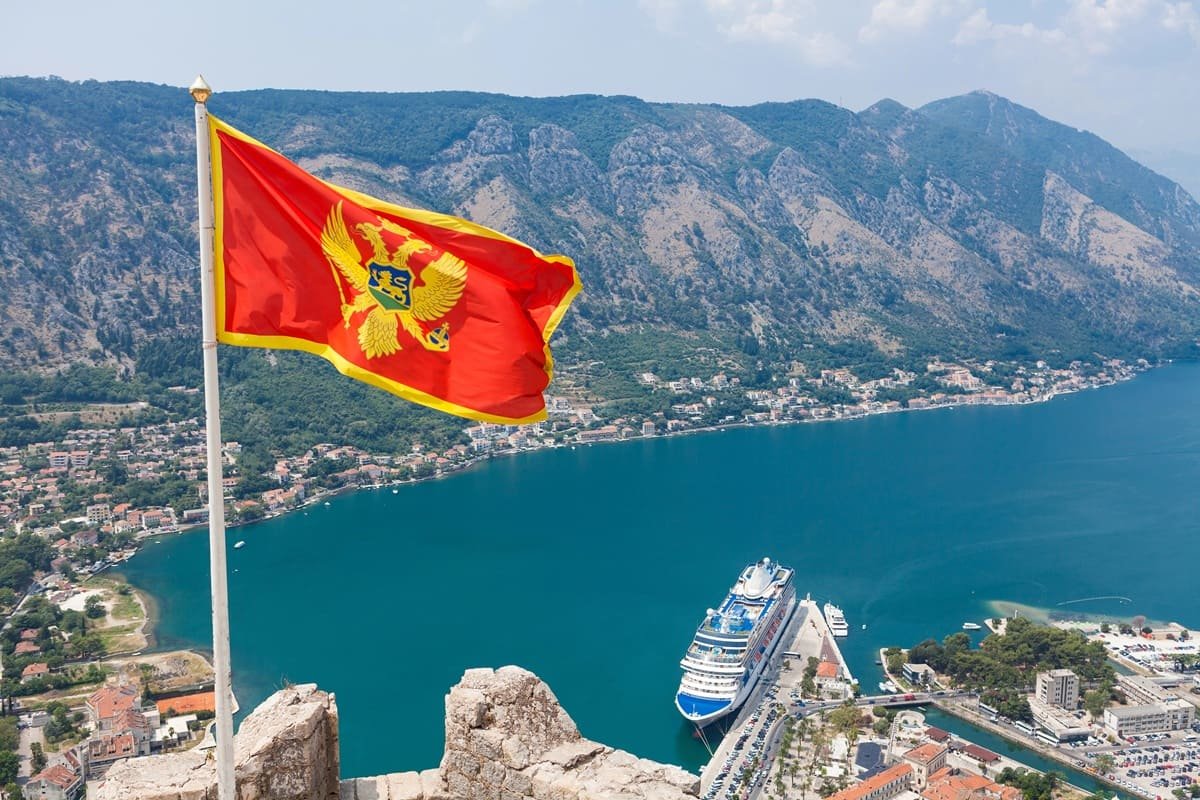Visa on arrival, very long-stay multiple-entry visas, lower prices and extended validity and length of stay for e-Visa, visa exemption for cruise tourists… Russia is working to transform its visa policies.
Dmitri Vakhrukov, the Russian Federation’s Deputy Minister for Economic Development, made a number of announcements at the “Travel !” Russian Tourism Forum concerning the various changes his department is planning to make to the country’s visa policies.
In particular, the Ministry of Economic Development is proposing to introduce the possibility of issuing visas on arrival in Russia and unilaterally cancelling visas for certain countries.
“To sum up everything I have said, we are submitting specific proposals to our colleagues in other departments to consider the possibility of implementing a visa-on-arrival mechanism in Russia. This mechanism has already been implemented in many countries. Not for all of them, but for certain countries that we are targeting”, he said.
The most important and fundamental decision, in his view, should also be to lift the ban on unilateral simplification of visa requirements. “In this way, we could unilaterally make our country visa-free for certain nations”, said the deputy minister.
Towards the introduction of a two-year multiple-entry visa in Russia?
The Ministry is also proposing the introduction of long-term multiple-entry visas.
Dmitri Vakhrukov pointed out that the introduction of multiple-entry visas for Russia could have a positive effect on the growth of tourist traffic to the country.
“In our opinion, and as experts confirm, a multiple-entry visa valid for 15 months or 2 years can have a positive effect. We don’t have that today, and that’s one of the main directions”, he pointed out, suggesting that the seasonal factor should be considered.
“For example, for China and the Middle East, there are different periods when tourism to Russia will be most in demand. Chinese New Year, for example, is January-February, and the Middle East is December, July and August. In other words, we’re trying to find out at which times of the year our tourism product will be in greatest demand”, he explained.
A redesign of the Russian e-Visa under consideration
Since August 2023, tourists from 56 countries, including European states, can apply for an electronic visa (e-Visa) to travel to Russia.
Currently, the e-Visa is valid for 60 days from approval and allows a stay of 16 days in Russia. The visa is issued for a single entry into the country and costs 50 dollars.
According to Dmitri Vakhrukov, the relevant ministries are working to develop the e-visa further.
“We are also submitting other specific proposals to our colleagues in other departments, particularly regarding pricing, increasing the multiplicity, the duration of stay, and the validity of the electronic visa”, he stated.
Alexander Musikhin, the CEO of tour operator Intourist, stated yesterday during the plenary session of the Forum that the simplification of the visa regime is a “powerful tool for promoting the country, and that the introduction of the electronic visa has already increased the flow of tourists to Russia”.
He therefore called for further steps to be taken and for the introduction of a double-entry e-Visa to expand the possibilities for selling combined Russia/Kazakhstan or Russia/Belarus trips, in order to increase the motivation of foreign tourists to (re)come to Russia.
Russia is targeting 400,000 entries with an electronic visa by the end of the year
The number of foreign citizens entering Russia with an electronic visa will reach 400,000 by the end of 2024. This was stated by Alexander Khapilov, the Deputy Director of the Consular Department of the Russian Foreign Ministry, today at the “Travel!” Forum.
“In less than a year, about 380,000 electronic visas have been issued. Compared to regular visas, this is a very good result under the pressure of sanctions. I think that by the end of the year, we will reach 400,000”, explains the consular official.
Alexandre Khapilov explains that the next task is to “analyse the progress made in issuing electronic visas over the course of the year, from 1 August 2023 to 1 August 2024. To study all the advantages and disadvantages and to submit a report, our proposals and all the conclusions by 10 December, so that we can then take decisions on further development”, he adds.
Since the beginning of the year, Russia has issued 178,000 e-Visas to foreign visitors.
Cruise tourists might benefit from a 3-day visa exemption
The Ministry of Economic Development is also proposing to allow foreign tourists traveling on cruise ships to stay in Russia without a visa for three days.
This proposal aims to reactivate the previously applied visa exemption policy for cruise passengers entering Russia through the ports of St. Petersburg and extend it to future seaside resorts of the “Five Seas.”
“The idea is to allow cruise ship passengers to stay visa-free for 72 hours in Russia. We are considering extending this topic to the ‘Five Seas’ seaside resorts, which will be built soon. There are marinas everywhere, so the ship docks and for three days, foreigners can disembark, walk around, and spend money with us. In St. Petersburg, they had the opportunity to stay 72 hours without a visa. We want to make it possible again, and not only in St. Petersburg”, says Dmitri Vakhrukov.
Russian President Vladimir Putin recently instructed his government to approve the “Five Seas” project as part of the national project “Tourism and Hospitality.”
Federal seaside resorts open all year round will soon appear on the coasts of :
- The Sea of Azov (“Primorsk” resort, in the Zaporozhye region) ;
- The Baltic Sea (“White Dune,” in the Kaliningrad region, and “St. Petersburg Marina”) ;
- The Caspian Sea (“Caspian Sea Coastal Hub,” in Dagestan) ;
- The Black Sea (“New Anapa,” in the Krasnodar region, and “Golden Sands,” in Crimea) ;
- The Sea of Japan (“Primorye,” in the Primorsky territory).







